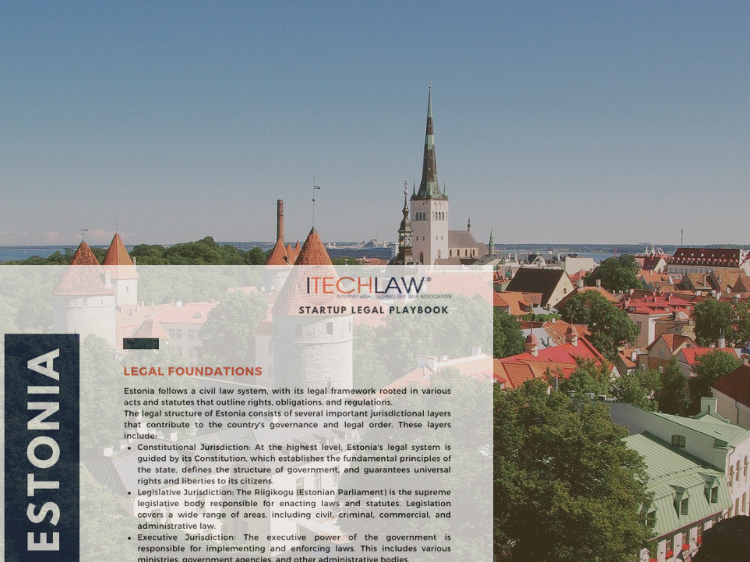
Judged on the current political situation in the UK, where the parliament is split between various Brexit models and apparently unable to form a political majority for one specific ‘soft’ Brexit model as well as on the announcements from the EU that the EU is not willing to renegotiate the draft Brexit deal, which was turned down by the Houses of Parliament, the likelihood of a hard Brexit has become higher than ever.
Considering, that time is becoming of the essence – as there at the date of this newsletter is only about a month until Brexit Date, 29 March 2019 – businesses within the other 27 EU Member States need to start preparing themselves on a ‘no-deal’ Brexit. There are actions that businesses need to take before the Brexit Date. At the date of the issuance of this newsletter, the UK government is stating that it may vote on delaying the Brexit Date. It remains to be seen whether a postponement of the date will in fact be approved by the UK parliament.
In any case, it should be emphasized that it is not just companies trading with UK based counterparts (whether through export or import of goods and/or services) that are affected by a ‘no-deal’ Brexit, it is – as we shall explain in more detail later – also companies who have entered into contracts that have English law as the governing law.
1. Consequences of the UK becoming a “third country”
In a ‘no-deal’ scenario, the UK will as per definition on 29 March 2019 become a third country vis-à-vis the rest of the 27 Member States. Thus, all trading with the UK will have to be carried out as with any other third country, not having any trade agreement with the EU.
Consequently, goods to be exported to the UK and goods being imported from the UK needs to go through customs check. Custom duty will have to be paid on the goods. VAT will be treated the same way as when trading with other third countries. Danish companies will have to ascertain that they have the correct VAT certification allowing them to either export or import goods or services to/from third countries which, includes the UK after 29 March 2019. The same will most probably apply to companies in other Member States, too.
Intellectual property rights (IPR) that have been filed and registered though e.g. an EU trademark registration or EU patent registration will no longer be protected in the UK, as such IPR will have to be registered by the Intellectual Property Office in the UK. Otherwise, such IPR will no longer be protected against infringements occurring in the UK.
In addition to the above, the following areas will be affected:
- Travel between EU and the UK
- Transportation of goods by air, land and sea
- The establishment of EU companies in the UK
- GDPR and transfer of personal data
- Contracts governed by English law
- Enforcement of commercial judgements in the UK
- The role of the Hague Convention and other international conventions
- The ability of UK legal practitioners and financial advisors to practise in the EU and vice-versa, and legal practising standards across the EU
(The list is not exhaustive)
2. Certification, import/export of goods, and border control
If your business is exporting goods to the UK, then the rules of the World Trade Organisation (“WTO”) will apply after 29 March. The WTO rules do not contain the right to freely establish a business or the right to free movement as under the EU rules for the single market. Hence, EU businesses can only get access to the UK market within a certain sector, if the UK has committed itself thereto under the WTO rules.
According to the EU rules it is not permitted to discriminate businesses from other Member States compared to domestic businesses. The WTO rules do not have a similar ban against discriminating practice. Although, a country has voluntarily accepted to such commitments and exemptions for a specific sector. Such commitments and exemptions are set out in a list for each member of the WTO. Currently, it is unclear to what extent the UK will accept not to discriminate services provided by non-UK businesses.
The EU has on behalf of all the Member States undertaken certain commitments and exemptions under the WTO rules, e.g. within insurance services and banking services for where the provider of such services has established itself within the EU. Thus, British businesses can only be allowed access to the EU single market within sectors the EU has committed to under the WTO rules.
Pursuant to the current EU rules, there are restrictions as to which demands authorities in the respective Member States can make towards EU businesses offering services. After Brexit, such restrictions will not apply in the UK, and thus EU businesses providing services to businesses or consumers in the UK may experience fewer demands from the authorities.
Businesses that use British standards as documentation for compliance with product quality, health and safety, durability or the like requirements, do risk that such documentation will become obsolete and many will have to re-register their approvals/certification from an EU based provider in order to ensure continued sale of products which require approval/certification.
In the event an EU business has appointed process agents residing in the UK to be their EU representative, they will have to appoint new EU representatives in another Member State.
Businesses importing goods from the UK that haven’t imported goods from third countries before will have to submit a registration as importer of goods from third countries. In such case, businesses should be aware that an importer of goods from third countries in most cases will be required to issue a financial guarantee in favour of the custom duty authority. Furthermore, it should be noted that the forms and documents that need to be submitted are more and different from the documentation that needs to be submitted, when goods are imported from another Member State.
To have the imported goods released the custom duty must be paid first or alternatively the business must enter a special credit scheme providing for monthly payments. VAT and possible excise duty on imported goods from third countries is also treated differently than on goods imported from a Member State. Goods from other Member States are not subject to custom clearance, whereas that is the case for goods imported from third countries. Businesses exporting goods to the UK will after Brexit, experience equal changes in registration, documentation, custom clearance etc. as an importer.
In addition to the expected additional documentation requirements for goods both inbound and outbound, custom checks/clearance will most probably slow down the flow of goods and cause border congestion, leading to increased shipping times. This will of course be critical to time-sensitive industries shipping perishable goods as well for industries that are highly dependent on the “just-in-time” delivery concept.
3. Transportation of goods by air, land and sea to/from the UK
Air cargo is only one aspect of aviation, which in the EU, is governed by the European Common Aviation Area (ECAA). The area covers more than the actual EU and has been extended to other countries as well. However, a Norton Rose Fulbright post published on 24 August 2017 reminded of the fact that the ECAA was given effect by a multilateral agreement signed by the EU on 9 June 2006. The multilateral agreement provides for certain disputes to be resolved by the European Court of Justice. Brexit would, however, bring an end to the European Court of Justice’s jurisdiction in the UK. With a no-deal Brexit it is difficult to predict how this will affect air freight services between the EU and the UK in the medium to long term, i.e. after 31 December 2019, because then the temporary agreement between the EU and the UK will continue to apply and the current terms and conditions for aviation will end. Consequently, the parties will have to negotiate a new agreement for aviation, so that passengers and cargo can continue travel between the EU and the UK.
In addition to the above, extended border control and paper work for inbound as well as outbound goods will apply to air cargo services, so congestion at custom clearance in the UK airports- in particular- is likely to occur. Thus, it may be in vain for businesses to think that they can escape their goods from being stuck or considerably delayed in a UK custom duty zone in a UK seaport by shipping their goods with more expensive air cargo handlers.
For airlines belonging to the IAG consortium there may be implications for their partners Aer Lingus, Iberia and British Airways. Today most of the shares are British-owned in an environment in which EU ownership of airlines is one of the last restrictions under EU policy. Thus, to continue operating in the EU, airlines will have to alter their shareholder structure into an EU majority.
In addition to air cargo traffic between EU Member States and the UK, transatlantic flights are based on the Open Skies Agreement between the U.S. and the EU. Negotiations on a post-Brexit aviation agreement between the US and the UK will have to materialise in a final agreement. Last March Bloomberg reported that Washington has offered the UK an Open Skies aviation deal that would be more restrictive than the UK has as a member of the European Union.
If your business is a haulage company transporting goods to or from the UK (on land), then a no-deal Brexit will mean that as a starting point, your business will not be able to carry on such activities without a special permit issued by the British authorities. Thus, you need to keep yourself updated on the status of terms and conditions for carrying out haulage in the UK.
You should also be aware that a lorry driver qualification permission issued by the EU will no longer be valid in the UK after a no-deal Brexit. Likewise, British lorry drivers who do not hold an EU qualification permission, will have to undertake an EU driver qualification course.
Transport of goods to/from the UK by sea will most likely be affected by a no-deal Brexit as well. The requirements for obtaining a permit to call to ports in the UK, is currently unknow.
Please, be aware that even if your business is not shipping goods to/from the UK itself your sub-suppliers of logistics are part of your supply chain, and thus you need to ensure that they have the necessary permits to carry out the transport of your goods, so that your business can honour its contractual obligations.
4. Approval and establishment of EU companies in the UK post Brexit
In the field of company law, with respect to cross-border matters, UK companies will be exposed to national laws in the EU Member States after a no-deal Brexit, as the EU Treaty freedom of establishment will no longer apply and vice-versa. This may lead to tensions between the two systems of recognition of foreign companies. However, company law in the EU has been heavily regulated by directives which has been transposed into domestic law in the EU Member States, including the UK. Thus, in the short run the issue of company law is not considered to present a major problem even in a no-deal Brexit scenario.
5. Review of legal agreements and governing law clauses post Brexit
European businesses and clients should consider whether English governing law clauses should continue to be applied after the UK leaves the EU. Businesses should make an informed decision in this regard. Depending on who you ask, the answer will most certainly be that it will make sense to continue to apply English governing law clauses, as English law is predictable, business friendly and will continue to be so after Brexit. However, businesses should review their contracts to ensure that governing law clauses comply with their national law and jurisdiction, that they are valid, unambiguous and still workable after Brexit.
Secondly, they should review their contracts for references to EU legislation or use of EU concepts or regulatory frameworks, because when the UK leaves the EU, any EU legislation based on EU regulations (and not directives that have been transposed into domestic law by Member States) will no longer be applicable under English law.
Third, when it comes to resolving contractual disputes there are other options than litigation. Many contracts refer to alternative dispute resolution, often via prescribed methods such as mediation or arbitration. In this context it should be noted that common law is based on precedents rather than laws and is further developed by judicial interpretation. In contrast, civil law in Europe is based on codefined laws, detailing the interpretation of the law. In principle therefore, there is a risk under English law that in the absence of a so-called Brexit clause, the court will assume that the contracting parties did not wish to adopt binding rules, thereby leaving the contract open to the court´s interpretation, resulting in a change to the parties’ contractual intentions.
British law firms have begun adopting “Brexit security clauses” in favour of their clients. They cover for example, wordings that a UK contractor may be entitled to require renegotiation of the terms of the contract, if Brexit has a detrimental effect on the contractual relationship. Other issues covered deal with losses suffered by UK clients in relation to currency fluctuations.
For the above reasons, the conclusion of a contract governed by English law should be considered carefully by European businesses post Brexit, and in case of doubt, it may be more advantageous to amend the contract to have it governed by EU law, such as German or Swedish law for example.
6. IPR applications and enforcement post Brexit
Intellectual property is an important asset for any business. Maintaining adequate protection at national, European and international level, is key. Within the EU, most IPR rights systems have been harmonized and there is little chance of EU businesses losing their rights post Brexit in the two-year transition period.
After the transition period, existing EU trademark registrations will no longer include protection in the UK. The effect of an EU trademark will cease to cover the UK. It will therefore involve more administration and costs to ensure that marks are protected both in the EU as well as in the UK after the transition period. The same applies to designs.
As far as patents are concerned, the long-awaited uniform patent registration system will come into force once ratified by 13 EU member states. The UK is one of the 13-member states and has yet to ratify the system. Therefore, the current system for protection of patents is not expected to change radically after Brexit. The UK will continue to remain a member of the European Patent Convention and businesses can continue to follow the same procedures as today.
Certain procedures in relation to patenting of medical and plant protection products, will change, however. As far as copyright and database rights are concerned, the EU has adopted directives in this area. In addition, each EU member state has adopted their own national copyright laws. Businesses should be aware that there may be more room for differing interpretations and over time the UK copyright protection regime will align with the US copyright protection system.
7. Data protection post Brexit
Currently, personal data can flow freely between member states in the EU, where the GDPR apply. Once EU law ceases to apply to the UK, the transfer of personal data from the EU to the UK will still be possible but transfer of data will be subject to specific conditions set in EU law.
Companies and member states currently transmitting personal data to the UK should be aware that future transfers of data will amount to transfer of personal data to a third country. They should explore whether such transfer is permitted under relevant provisions of EU legislation. If the UKs level of personal data protection is essentially equivalent to that of the EU, the transfer of personal data to the UK will be allowed without restrictions. However, this scenario only applies when the UK is considered a third country for legal purposes.
Companies should assess whether, in the absence of an adequacy decision, their legal documentation and data protection measures are necessary to ensure that data transfers remain possible. Businesses in the EU should scale up their efforts to evaluate the risks that Brexit can pose to current rules in order to adapt and plan for Brexit.
They should assess third party contracts in relation to prohibitions on data transfer outside of the EU and allow for appropriate data transfer mechanisms from the EU to the UK. They should assess whether changes are needed to reflect that the UK will be a third country, and review privacy notices, if applicable.
They should identify data flows and supplier relationships, and review agreements with suppliers to consider if they are impacted by contractual restrictions on international data transfers outside of the EU. They should review sample privacy notices to consider adequate description of data transfers and update other data flow templates as required.
8. Enforcement of commercial judgements post Brexit
Subject to the transitional period, the application of rules of private international law will change in the UK after Brexit, as the UK will be considered a third country from a legal perspective. As such, international conventions will become applicable between the UK and the EU. Therefore, EU rules will not apply to proceedings to enforce a judgement from a UK court commenced after the withdrawal date.
For this reason, European businesses should consider their contractual choice of international jurisdiction carefully, when entering into legal agreements with the UK. Contracting parties have historically granted exclusive jurisdiction to English courts in relation to disputes stemming from international or cross-border contracts and EU court judgements are currently enforceable in all Member States within the EU.
An English court judgement can currently be enforced in the EU by virtue of the Recast Brussels Regulation provided the proceedings have commenced after 10 January 2015. The 2001 Brussels Regulation, the Lugano Convention 2007 for enforcement of judgements between the EU and EFTA, (except Liechtenstein), i.e. Iceland, Norway and Switzerland, will also apply.
Once the UK leaves the EU, UK judgements will no longer be subject to the EU´s regime of enforcement. UK legal advisors face the prospect of having to come to grips with each Member State’s legal system. The EU will want to ensure that enforcement is reciprocal. EU companies trading in the UK will want to ensure that their judgements can be easily enforced in the UK. Until the EU achieves some certainty as to the terms of the UK’s exit from the EU, the future for the enforcement of UK court judgements remain unclear. Notwithstanding the foregoing, the Hauge Convention, regulates to a certain extent, the venue of a dispute resolution where a contract does not contain a dispute resolution clause or if there is no contract. This point will continue to remain unaffected by Brexit. However, the Hauge Convention does not regulate the enforceability of judgements in the contracting states when a judgement is handed down by a court in one of the contracting states.
As far as arbitration is concerned, several countries have acceded to the 1958 New York Convention on the Recognition and Enforcement of Foreign Awards. The convention will be unaffected by EU rules. The convention require that courts of contracting states give effect to an arbitration agreement and recognise awards made in other states, subject to specific limited exceptions. Arbitration may therefore be viewed as a safer forum with greater certainty of approach given that the enforcement of arbitral awards should not be affected by Brexit. It can therefore be expected that arbitration will be the preferred choice of dispute resolution both for domestic EU and international contracts while the uncertainty surrounding Brexit continues.
9. Conventions and international agreements post Brexit
Conventions and international agreements are rules of political practice that have evolved over time and are generally accepted by the participants in the political game. Some of them have substantial impact, others are less important, they are purely symbolic, not enforced and not worth the paper they are written on.
It remains to be seen whether the conventions and agreements that will come into play, such as the Hague Convention will in fact be enforced and applied after Brexit. In addition, conventions can easily be overwritten by new national laws They only exist if there is a political majority in favour of them. Apart from the possibilities of concluding new international agreements, the question is what will happen to existing agreements and conventions, and to UKs position in relation to those agreements. The many different types of international conventions do not allow for a detailed analysis, but specific studies have pointed to the extreme complexities they cover with regards to areas such as trade and fishing.
Furthermore, EU agreements and guidelines are far from consistent. On the one hand, they seem to accept that after withdrawal the UK will no longer be covered by agreements concluded by the union or by Member States acting on its behalf or by both acting jointly. At the same time, they also stipulate that the EU expects the UK to honour its share of international commitments contracted in the context of its EU membership. In such instance, a constructive dialogue with the UK on a possible common approach towards third country partners and international organizations is necessary.
10. Legal services post Brexit
One important issue to consider is the provision of legal services in Europe after Brexit. Cross-border agreements have traditionally been drafted in English and governed by English law. The practice of applying English law goes back centuries and English language has been used in legal drafting for reasons of convenience. The result has been that legal disputes in cross-border transactions and trade disputes have, in the main, been decided by UK courts. This has meant that the UK legal system has gained a dominant position over EU legal systems. As an example, within the banking and marine related industries, English law has been established as the standard choice of law.
It is to be expected that UK practitioners will be reluctant to give up the position of dominance, and EU businesses transacting with the UK, should prepare for UKs unwillingness to alter its practice. UK practitioners will be reluctant to deviate from common law styles of drafting and will in general, have insufficient knowledge of EU jurisdictions and legal systems. EU practitioners, on the other hand, have negotiated and drafted legal agreements in English for years. It is to be expected, that mid-sized and less international UK law firms, will be reluctant or unable to alter current practices. This is partly evidenced by the substantial amount of Brexit articles published by UK law firms and UK authorities leading up to the withdrawal date. The general view, it appears, is that retaining current practicing status quo is overall, acceptable.
Furthermore, the UK Law Society and the Solicitors Regulation Authority have published articles in favour of the UK legal system. They reiterate that UK law is predictable, business friendly and transparent. Therefore, it will be up to the European Union to enact further and more deep reaching laws that will apply across borders and jurisdictions in the EU, thereby aligning EU jurisdictions closer to one another, to pose a competitive alternative to English law.
An additional factor is that it will take time for the UK government to amend its current legal system as a substantial number of EU laws are interwoven into UK laws. The UK government it seems, is poorly prepared for the effect Brexit will have on the UK legal system and amending laws and regulations will be time consuming and expensive. Brexit may thus, lead to increased competition among common law and civil law practitioners and legal systems.
Brexit may also result in English speaking legal systems (all based on common law) becoming more aligned with one another. Legal services and drafting practices, after Brexit is thus, an overlooked factor in the Brexit debate and European businesses and clients are well advised to consider developments in this area. It will impact most of the Brexit issues discussed in this newsletter. UK legal practitioners will be reluctant to alter current practicing standards, except in few and specific instances. UK law and practicing standards, we expect will therefore continue to remain dominant in Europe, particularly in relation to cross-border transactions and trade.
11. Other affected areas
Other areas that will be affected post Brexit is competition law and employment law. The EU has enacted laws that conflict with domestic UK laws in these areas. However, at this stage it is impossible to outline what the consequences of Brexit will be – it would be pure guesswork.
12. Conclusion – Magnusson´s expertise and services
It remains to be seen what effect a `no-deal` Brexit will have in the short term, from a legal point of view. However, irrespective of a hard or soft Brexit and of whether your business:
- exports or imports goods, services or data to/from the UK;
- has entered into trading agreements or other agreements where English law is the governing law;
- have UK citizens employed in one or more of your EU continental based units;
- have non-UK citizens employed in your UK based unit;
the operation of your business will be affected – and the above list is in no way exhaustive.
As time is becoming of the essence, we strongly recommend that you make a thorough analysis of the UK reach of your entire business operation, if you have not already done so.
At Magnusson we have established a special task force to assist businesses and clients with the implications of Brexit in view of the uncertain times ahead, and after the withdrawal date that may or may not take place on 29 March. Magnusson´s legal advisors have many years of experience and include dual qualified UK solicitors. We have developed special Brexit templates and precedents. We can assist you in reviewing your legal agreements with your UK counterparts and cooperation partners. We can assist in your negotiations with UK partners and legal counsel. Please feel free to contact us.










